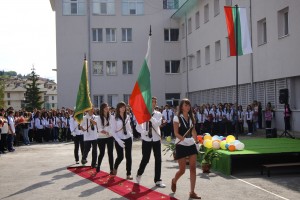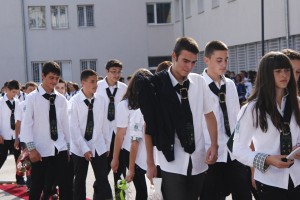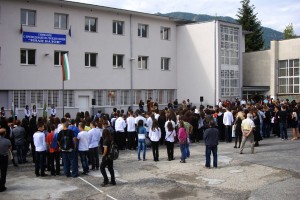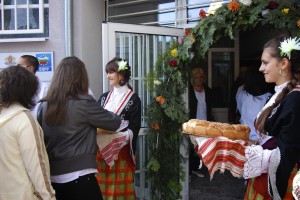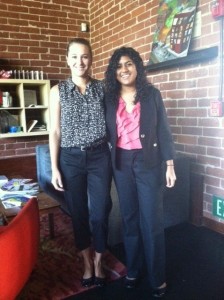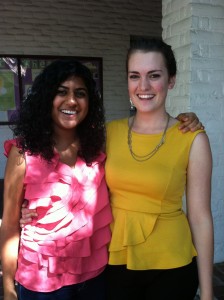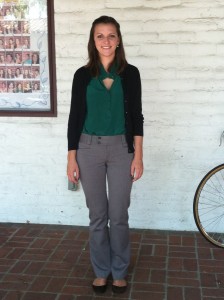As I researched programs and opportunities to teach English abroad, I noticed a prevalent (and conveniently marketable) idea that all students abroad, particularly in newly industrialized and developing countries, love and are grateful for any education. Now this is a trend that perpetuates neo-colonialism, white-savior complexes, and a whole lot of other –isms I’m not going to get into right now. What I am going to talk about is how my experience hasn’t resembled the classroom full of wide-eyed, smiling kids you’ll find when you Google “teach abroad.”
My students are doing their eyeliner, teasing their hair, texting and even leaving to answer their phones in the hall (at least they don’t answer it in the classroom?). Then there is the sudoku, the driver’s manuals, the earbuds with music just loud enough so that everyone can hear it, and the constant chatter of people in the back. There’s the girl who turns her chair all the way around to talk to the girl behind her, and the boy who comes to class late and immediately starts talking loudly about how he is bored. There are the boys who walk into class 20 minutes late, and the couple in the front row who are always cuddling. I set my rules and expectations clearly the first day, harshed down the second, but I only see each class once a week. I’m faced with the dilemma of enforcing rules (something akin to whack-a-mole), or using my short 45-minutes to teach something to those willing to listen and only commenting on outrageous breaches of conduct.
If you only observed the first day of school, this might not be the classroom environment you expect. I arrived at Ivan Vazov’s quad (a large cement rectangle that hosts stealthily smoking teens and playground games after school), to find all grades, quite a few parents and all the teachers gathered around the speakers blasting a dubstep remix of Flo Rida’s “Good Feeling.” The official ceremony included speeches by the principal and local big-wigs. Students loaded down their teachers with bouquets of flowers. Students gave musical performances, read poetry, and danced traditional Bulgarian steps. One of my 12th graders played the gaida (a traditional Bulgarian bagpipe) as teachers and students lined up for a symbolic processional into the school, eating a piece of bread dipped in honey as they crossed over the threshold. A Fulbright scholar here doing fieldwork in Anthropology observed this ritual and pointed out that rituals don’t represent what is, but instead harken back to a golden, mythical age (Mircea Eliade, and a huge shout out to the RLST department). In this case, the ritual recalls some time under Ottoman rule, when the three most revered people in town were the mayor, clergy leader, and school-teacher.
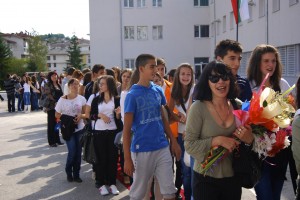
A 10th grade English teacher carries an armful of flowers from her new students, who have forsaken their uniforms for the day
This isn’t to say I don’t have some awesome students. One student has emailed me detailed questions regarding university in America, and another asked where she might be able to find a paperback of the Great Gatsby. Five of my twenty-five 12th graders turned in the short personal essays I assigned, and they were a delight for me to read. My 8th graders have a lot of energy and someone always volunteers. On birthdays and name-days, students and teachers bring in large boxes of chocolate to share. This Saturday, the school marked World Walking Day with a school-wide hike to Balieva Voda, springs with purported healing properties.
Teaching here is a challenge, but it’s not all bad. If anything, it’s just louder than I expected.

